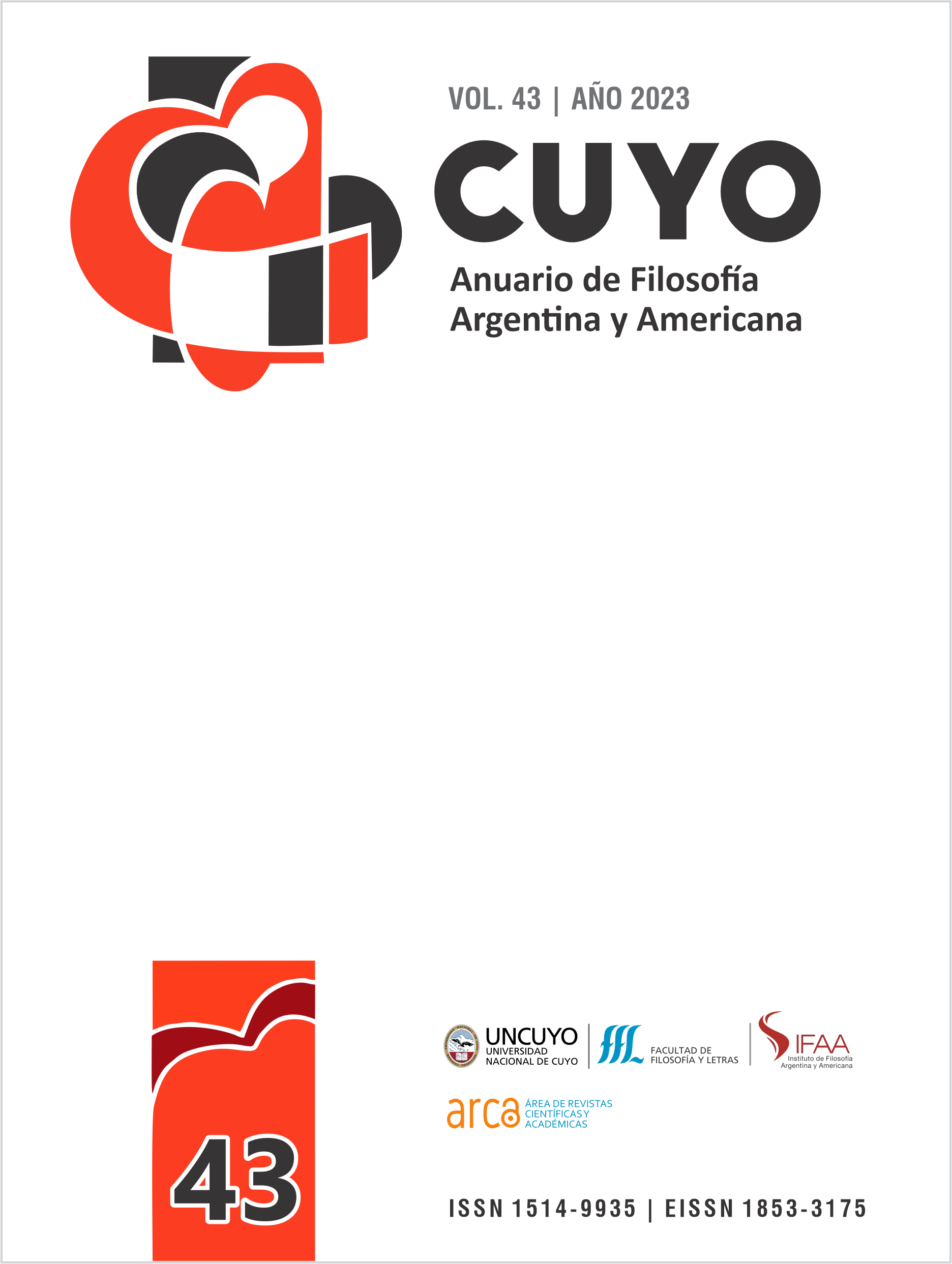The meaning of “kirio” in Pedro Figari’s late thought
Keywords:
Pedro Figari, utopian thought, Latin American thought, criticism of ModernityAbstract
The Uruguayan Pedro Figari (1861-1938), a prominent painter, was also an original thinker. He was the author of a utopian/satirical novel, Historia kiria (1930), a work published in Paris, where he lived between 1925 and 1934. Not widely known and barely read, Figari presented in that novel the kirios, an imaginary archaic civilization whose old and good “essential virtues” he transformed into a universal standard of reasonableness and common sense: a standard from which he judged the events of the world around him, and its protagonists. As soon as the novel was published, Figari adopted the kirio point of view to formulate actuality comments and reflections, something of which there is abundant testimony in his correspondence from the period. Since it is not immediately obvious, it makes sense to ask what it was like for Figari to be a kirio. Or, better, what kirio is as a concept: what distinguishes it, what characterizes it. In this work, I try to offer an answer to this question.
Downloads
References
Figari, Pedro (1903). La pena de muerte. Montevideo: El Siglo Ilustrado.
Figari, Pedro (1928). El arquitecto. Ensayo poético, con acotaciones gráficas. París: Le Livre Libre.
Figari, Pedro (1930). Historia kiria. París: Le Livre Libre.
Figari, Pedro (1960). Arte, estética, ideal. (Tres tomos). Biblioteca Artigas. Colección Clásicos Uruguayos, vols. 31, 32 y 33. Montevideo: Ministerio de Instrucción Pública y Previsión Social.
Figari, Pedro (2013). Historia kiria. Montevideo: Museo Figari.
Downloads
Published
How to Cite
Issue
Section
License
Copyright (c) 2023 Aníbal Corti

This work is licensed under a Creative Commons Attribution-NonCommercial-ShareAlike 4.0 International License.
NOTA DE CESIÓN DE DERECHOS
Esta nota de cesión de derechos debe ser completada por todos los autores de colaboraciones aceptadas por CUYO y enviada por correo electrónico a: cuyoanuario@gmail.com
Título del Manuscrito:.....................................................
Declaración
Mediante la presente nota el/los autores otorgamos licencia exclusiva y sin límite de temporalidad para la difusión del manuscrito dentro de la revista titulada "CUYO" que edita el Instituto de Filosofía Argentina y Americana, de la Facultad de Filosofía y Letras, Universidad Nacional de Cuyo, Mendoza, Argentina. Siendo de mi conocimiento que la distribución de la citada revista no es con finalidad lucrativa, sino académica, otorgo/otorgamos la autorización correspondiente para que la difusión pueda efectuarse a través de formato impreso y medios electrónicos, tanto en red local como por vía Internet.
Nombre y firma del autor o los autores:.....................................................................




























